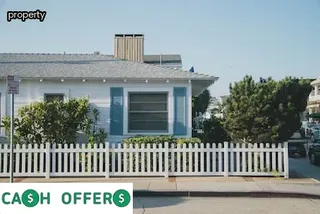When a loved one passes away and leaves behind a house, the process of transferring ownership of the property can be complicated. Understanding the basics of South Carolina probate law is key for anyone who needs to sell a house in probate.
In South Carolina, probate is the term used for the legal process of administering an estate after death. The court appoints someone to manage and distribute the deceased’s assets, including real estate.
Probate involves verifying or creating documents that prove title to the property and ensuring that any debts are paid off before ownership can be transferred to another person. Any party interested in purchasing a house before it goes through probate must go through certain steps, including obtaining written permission from the executor or administrator overseeing the estate.
Through this process, they must also show proof that all taxes related to the property have been paid and provide documentation proving their right to purchase the property with a deed that includes their name as well as details about how much was paid for it. After these requirements are met, they will need to record their deed with the local county clerk's office in order for it to take effect.

When a house is sold through probate, it can be beneficial to both the deceased's estate and the buyer. Probate sales provide an added layer of security for buyers because they are conducted under court supervision.
This means that all of the parties involved must comply with certain legal requirements and follow specific procedures. The process also helps to ensure that the property is sold at fair market value and that all debts, taxes, and other obligations are paid off before the decedent's estate is distributed among heirs.
Additionally, probate sales can provide a quick sale option for an estate since they do not require time-consuming negotiations between buyers and sellers. Finally, because probate sales typically occur without regard to market conditions or pricing trends, buyers have more control over their purchase price than they would in traditional real estate transactions.
When a house is sold in probate, a number of different parties are involved. The executor of the estate is responsible for ensuring that the sale of property follows the terms of the will or trust.
In South Carolina, if there is no will or trust, then an administrator may be appointed by the court to manage and distribute the estate's assets. The estate's beneficiaries have a say in how the property should be distributed and must be consulted.
Depending on why the house is being sold, other parties may be included in the process such as lenders who need to be paid off before proceeds can be distributed to heirs and creditors who need their debts settled. Additionally, an attorney specializing in probate law should oversee all aspects of the sale to ensure everything is done correctly according to state regulations.

When selling a house in probate in South Carolina, there are certain documents that must be gathered, reviewed and signed before the sale is finalized. These include a Certificate of Appointment of Personal Representative, which states that the person selling the house has been appointed by the court to dispose of the property according to state law.
Additionally, an inventory and appraisal of all estate assets must be completed and filed with the probate court. A deed transferring ownership of the property must also be prepared and it will need to be signed by both the seller and any other necessary parties.
Any liens or encumbrances on the title must also be cleared prior to closing. Finally, a petition for final discharge from administration may need to be filed with the probate court depending on if any debts remain outstanding after distribution of estate assets.
It is important to understand these requirements as they can vary based on each individual case; an experienced attorney can help ensure all documents are properly gathered and filed.
Navigating South Carolina probate law can be a complex process, especially when trying to sell a house in probate. It is important to understand the different steps and requirements that go into selling a home in probate.
First, the administrator of the estate must file a petition with the court and receive Letters Testamentary or Letters of Administration. This document confirms that they are the legal representative of the deceased and allows them to permit the sale of real estate owned by the deceased.
Next, an appraisal must be obtained for fair market value of the property. A notice must then be published in a newspaper with jurisdiction over where the property is located.
This informs all potential buyers and creditors of the proposed sale as well as other interested parties. After this, bids may be accepted from qualified buyers, who must provide proof of funds before closing on their purchase.
Lastly, once all paperwork has been completed and approved by the court, title can then be transferred to new ownership and the proceeds distributed according to state law. Understanding South Carolina probate law is vital when it comes to selling a house in probate; however, with knowledge and careful guidance, it can be done efficiently so everyone involved obtains what they are entitled to under state law.

In South Carolina, there are three types of wills that can be used to settle an estate. The first is a holographic will which is written entirely by hand and signed by the testator (the person who drafted the will).
This type of will does not need to be witnessed or notarized. However, if the holographic will does not meet all legal requirements, it may not be accepted by the court.
The second type of will is known as an attested will. This type of will must be in writing and signed in front of witnesses and a notary public.
Finally, there is an oral or nuncupative will which must also be witnessed and typically only applies to members of the military or mariners at sea. When deciding which type of will to use, it is important to understand all legal requirements and consult with an attorney to ensure that your wishes are met upon your death.
An executor is an individual or entity appointed by the court to manage the estate of a deceased person in South Carolina. Their responsibilities include ensuring that all debts and taxes are paid, distributing assets to the beneficiaries, and overseeing the sale of any real property.
The executor must take care to ensure that all laws related to probate are followed, including those related to selling a house in probate. As part of their duties, the executor must make sure that all heirs are notified of their rights regarding the property and sign off on any agreements related to its sale.
In order to carry out these duties effectively, the executor should be familiar with South Carolina's probate law and keep diligent records throughout the process.

When an executor is appointed to handle the probate process in South Carolina, they are typically entitled to receive payment for their services. Knowing when and how much an executor can get paid is essential for understanding the probate process in South Carolina.
Generally, an executor will be paid after the estate has been settled and all debts have been paid. To determine the amount of compensation, a court-approved fee schedule is used.
The fee schedule takes into account factors such as the size of the estate, complexity of the probate process, and time spent by the executor handling matters related to the estate. It is important to note that while most fees are reasonable and fair, they can be challenged if they seem excessive or out of line with other area fees.
Additionally, some states may allow executors to pay themselves right away if there are sufficient funds available. Understanding when and how much executors get paid in South Carolina is critical for successful completion of a probate sale transaction.
When it comes to understanding South Carolina probate law, one of the biggest questions many people have is how long it takes to complete the probate process. The answer depends on a variety of factors, such as the size and complexity of the estate, whether any assets are disputed or subject to creditors' claims, and whether all heirs are easily located.
Generally speaking, most estates in South Carolina can be probated within 4 - 8 months if there are no complications. However, if there are disputes among heirs or other issues arise during the probate process, it could take much longer for the estate to be settled.
It’s important to note that additional legal steps may also be required before an asset such as a house can be sold from a probate estate. This can add extra time to the overall process.
In some cases, a court order may be needed in order for a sale to proceed. It's critical for anyone considering selling a house in South Carolina during probate to consult with an experienced attorney who can provide advice about their particular situation and help ensure that all requirements are met in an efficient manner.

In South Carolina, probate law requires that any real property owned by a decedent must go through the probate process before it can be sold. Though traditional probate procedures are often seen as the most straightforward option, there are alternatives to consider when selling a house in probate.
In some cases, an executor may use a Small Estate Affidavit to transfer title to real property without filing for a formal probate administration. Property can also be transferred if the owner has named one or more beneficiaries on their deed or through a Transfer on Death Deed.
Additionally, if all parties agree, an executor can sell real property without obtaining Letters of Administration from the court. Understanding these alternative methods for transferring title is essential in efficiently navigating the sale of a home in South Carolina's probate system.
When settling an estate in South Carolina, there are certain requirements that must be completed before the sale of a house can be finalized. It is important to understand the probate process, as well as the many steps associated with it.
Sellers should begin by getting an understanding of the state's probate law and how it affects their situation. This includes researching to determine if the property is subject to probate or not, and what types of documents will need to be filed during the process.
It is also important for sellers to understand any costs associated with settling an estate in South Carolina, including taxes and fees. Additionally, they should familiarize themselves with the laws regarding distribution of assets after a death and who has authority over those decisions.
By gaining a basic understanding of these rules and regulations, sellers can ensure that they are fully informed when making decisions regarding selling their home while in probate.

In South Carolina, it is important to understand the probate process and its specific timeframes that must be met when selling a house after someone has passed away. If a person dies with an estate plan in place in SC, typically the timeline begins within 30 days of death when opening an estate in court.
The Personal Representative of the estate must then provide notice to all heirs and beneficiaries of their right to file a claim against the estate. This notice must occur no later than 60 days after opening the probate case.
Additionally, heirs and beneficiaries have six months from the date of death to file any claims against the estate. The Personal Representative of the Estate must also publish a notice to creditors informing them they have three months from the date of publication to file a claim against the estate.
Finally, if no objections are filed within three months from publication of notice, then it is considered conclusive evidence that all debts have been paid and any remaining assets may be distributed to named beneficiaries.
In South Carolina, probate property is property that is owned by a deceased person at the time of their death. This includes both real estate and personal property such as cars, boats, furniture, bank accounts and other assets.
Generally speaking, probate property must be distributed or sold according to the deceased's will or state law if there is no will. Selling a house in probate in South Carolina requires an understanding of the different types of probate proceedings and the applicable laws.
For example, in order to sell real estate, a personal representative must be appointed by the court to administer the estate. The personal representative has the authority to list and sell real estate in accordance with state law.
They must also obtain court approval for any sale made during the probate process. In addition, taxes may need to be paid on any profits from the sale of the property before it can be distributed among heirs or beneficiaries.
Understanding these legal requirements is essential for selling a house in probate in South Carolina.

Yes, you can sell a house in probate in South Carolina. It is important to understand the laws and regulations associated with the probate process in order to ensure that the sale of your property is conducted properly.
In South Carolina, when a person dies and leaves behind real estate, it must be processed through the probate court system before it can be sold. The probate court will oversee the distribution of assets according to the instructions outlined in the deceased's will or any applicable laws.
During this process, an executor or administrator may be appointed by the court to manage and distribute all assets. Selling a house during probate can become complicated if there are multiple heirs involved with different interests in the property.
All parties must agree on how and when to proceed with selling the house, as well as how funds from its sale will be distributed among them. A knowledgeable attorney should always be consulted regarding questions related to probate law and selling a house in South Carolina prior to initiating any transactions.
In South Carolina, probate records are public documents and can be accessed by the public. The South Carolina Department of Probate maintains a number of records related to probate proceedings, including wills, inventories, and other documents related to the estate.
The public can access these records by visiting their local courthouse or searching online. In addition, many law firms provide access to probate records as part of their services.
Understanding South Carolina Probate Law will help individuals understand how to sell a house in probate and any associated legal processes. Having access to probate records is an important part of understanding how to navigate the complex process of selling a house in probate in the state.
In South Carolina, probate is the legal process of transferring a person's assets after they pass away. The deceased's estate must go through probate in order to transfer the ownership of assets and settle any outstanding debts or taxes.
This includes selling a house in probate. The executor of an estate is responsible for ensuring that all debts are paid and the assets are distributed according to the will or state laws.
Before selling a house in probate, it is important to understand South Carolina's probate laws to ensure the process is done correctly.